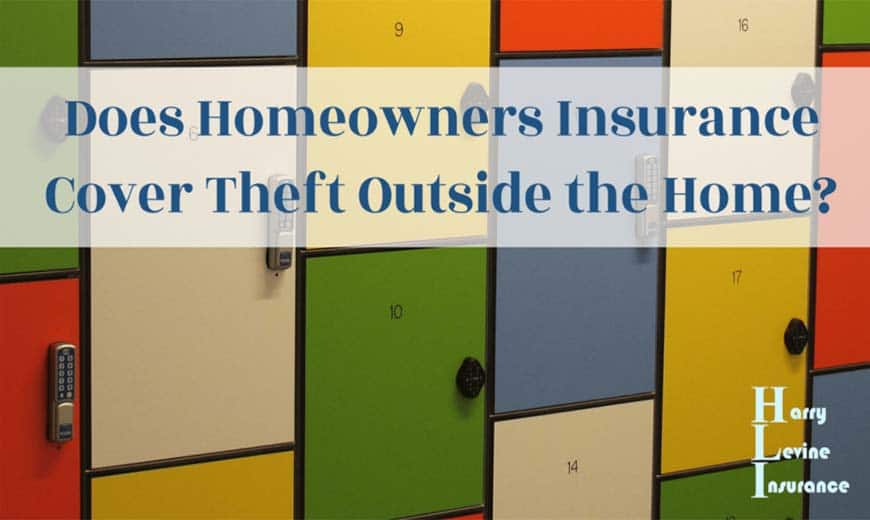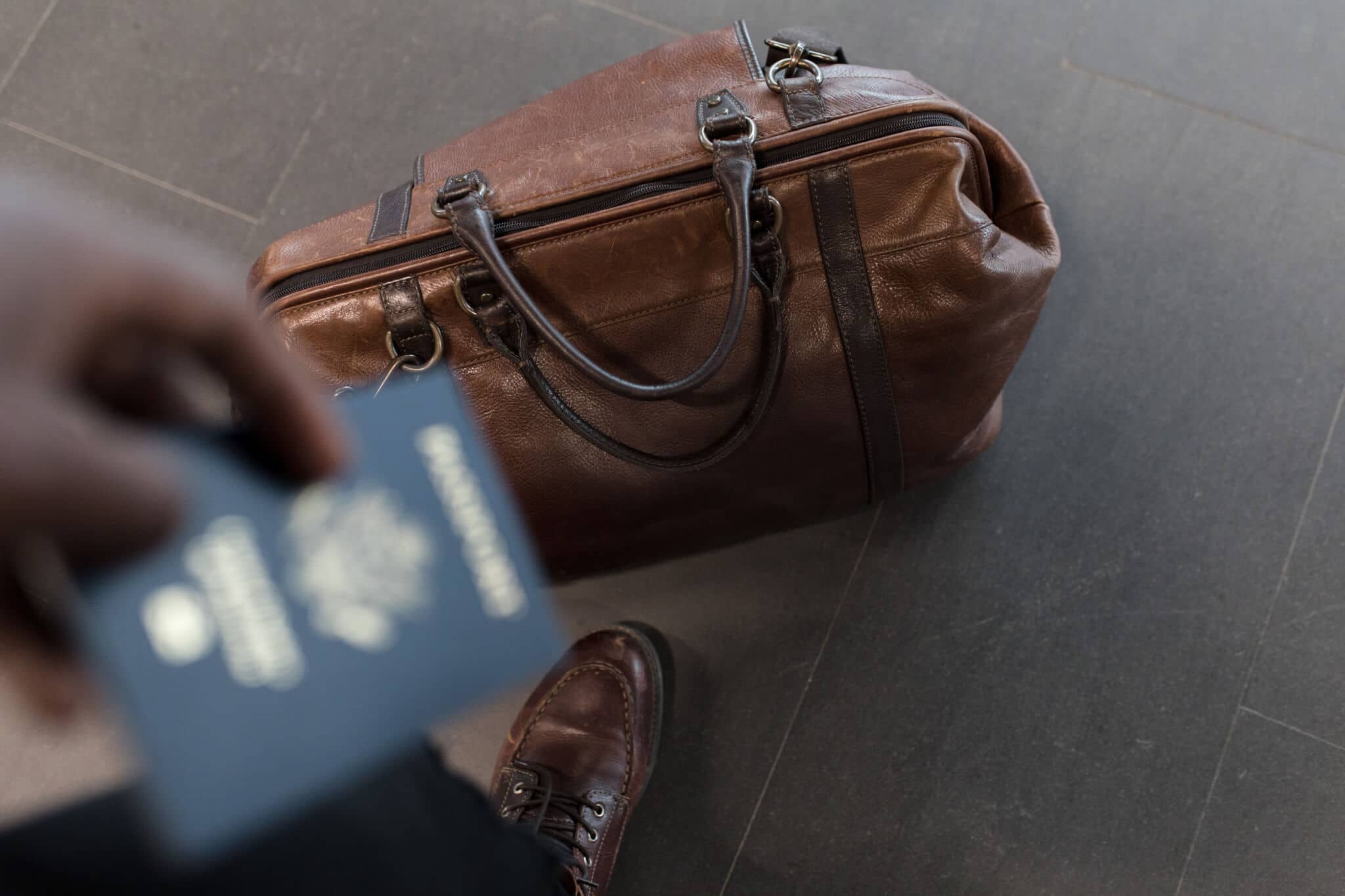When and where does your homeowners policy protect you?
Does homeowners insurance cover theft outside the home?
You’re probably already aware that your homeowners policy protects against theft—whether it’s a burglar who makes off with your new PlayStation or a contractor who slips a stack of cash into his pocket when you’re not looking.
But are you protected if someone steals your laptop at Starbucks while you’re picking up your latte?
While standard home insurance policies are designed to cover your personal belongings, those belongings don’t always stay within the walls of your home. You take them with you to work, when you travel, you even let your children take them off to college.
Does homeowners insurance cover theft outside the home?
Does Homeowners Insurance Cover Theft Outside the Home?
In most cases, yes.
Off-premises coverage, as it’s usually called, protects your personal belongings when they are not located inside your covered home. In some cases, it may be added as a rider to your existing policy but most of the time, it’s included in a standard homeowners policy.
As with any type of coverage, however, you need to be aware of the fine print. Off-premises coverage usually only covers up to 10% of your on-premises limit, that is, the coverage for items stolen from inside your home. If you have $100,000 of contents coverage, this would translate to $10,000 for off-premises.
So, where would off-premises coverage apply? Let’s take a look at a few examples.
Travel is one of the more common reasons for bringing your belongings outside of the house. Off-premises coverage would cover things like lost or stolen luggage and theft from your hotel room or rental car.
Your possessions are also protected when they’re in your car. While your auto insurance would be responsible for any physical damage and theft of audio equipment (or the entire car), your homeowners insurance may cover theft of anything unattached to the car.
Storage units and moving trucks can be covered as well. So if a rogue employee breaks into your storage space or a shady moving company makes off with your furniture, you may receive some compensation.
One instance you may not expect to be covered is with your kid at college. If you’re sending your new graduate off to university this fall, off-premises coverage can help if their laptop is stolen at the library.
The only caveat here is that this coverage usually only applies while they are living in campus housing. They’ll probably have to get their own policy if they move into their own house or apartment and claim legal residence at that address.
As always, each homeowners policy is different, so you’ll have to confirm with your insurance company or agent for specifics of your coverage.
Personal Property Coverage Limits
There are limits to any kind of insurance, and personal property coverage is no different.
Most homeowners policies set personal property limits that are based on the coverage limit of your dwelling (i.e. the physical structure of your house). For damage or theft inside the home, your personal belongings would typically be covered up to 50% of the dwelling coverage limit. Off-premises coverage is usually around 10% of that.
This means if the structure of your home is insured up to $200,000, your personal belongings will be covered up to $100,000, and off-premises coverage up to $10,000.
Your insurer will also have sub-limits for highly valuable objects such as cash, jewelry, antiques, boats, and firearms (just to name a few). For example, if your $8,000 diamond necklace is stolen from your moving van but your jewelry coverage is limited to $1,500, you’ll get $1,500, even if your off-premises limit is $10,000.
To get more coverage for these valuable objects, a personal article floater can increase your coverage limit and protect against accidental loss (something homeowners insurance doesn’t do).
Theft of business property will likely not be covered by your homeowners insurance, either, even if it was stolen from your home or you own a home-based business. You will have to purchase a Business Owner’s Policy instead. Some homeowner policies do have a small amount of business property coverage, but you’ll have to check your policy to be sure.
Are You Properly Covered?
Protecting your personal belongings against theft involves more than keeping your front door locked. In the event that you become a victim of theft outside the home, you want to know that you are covered.
Check your policy to make sure you have adequate off-premises coverage.
If you aren’t comfortable with your level of coverage (or you’re not sure), an independent insurance agent can assist you with increasing your limits, adding a rider to your existing policy, or shopping for a different insurance company altogether.
It’s also a good idea to keep a home inventory and regularly update it. If you experience a loss, you will have a record of the item’s existence and condition, which can help when it’s time to file a claim.
Conclusion
At Harry Levine Insurance, our goal is to make sure you and your belongings are protected against whatever life throws your way.
For more than 40 years, we have helped connect Central Florida homeowners with the policies and insurance companies that most benefit them. And because we’re an independent agency, we can present you with a wider variety of options to fit your needs and your budget.
Contact us today so we can discuss your insurance options and close any gaps in your coverage.








